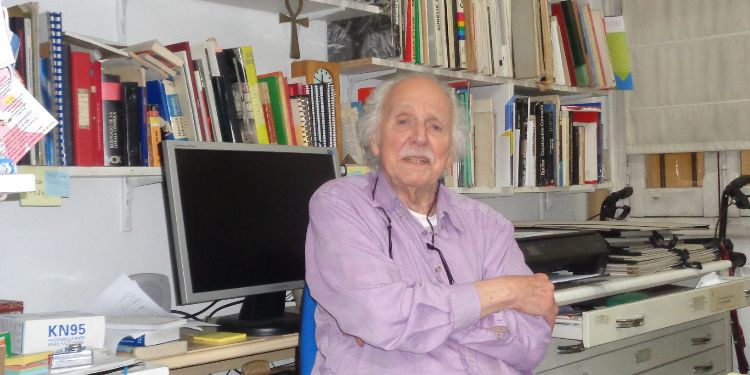
Madrid/The words of José Daniel Ferrer pronouncing in favor of an eventual dialogue if the regime would like to give it to The Council for Democratic Transition in Cuba (CTDC).
In a statement published Wednesday, the organization supports Ferrer’s position, and emphasizes that a peaceful transition must even have its detractors. “Es el modo de garantizar que el cambio no sea un juego de suma cero, en el que los vencedores reproduzcan las maneras, los estilos y el lenguaje que entonces los excluyó de vivir, participar y desarrollar sus talentos y capacidades, también sus opciones, With whole freedom. ”
In the document, shared in scoop with 14ymedio, The Council divides into two categories those who have opined on Ferrer’s statements: rational critics and those who have carried out a “stoning.” In his opinion, with the former it can be disagree, but they satisfy the “fundamental conditions for democratic discussion”, while the latter wants to answer them by analyzing the implications of their position on what it considers the “eight premises of democracy.”
The first resorts to the great historical figures that “left a legacy” because they were able to act from “forgiveness, reconciliation and inclusion” and cites Nelson Mandela, Mahatma Gandhi, Martin Luther King, Lech Walesa and Vaclav Havel. In his opinion, Ferrer “related to those who make history, at a distance of those who shout in history.”
In his opinion, Ferrer “matches those who make history, at a distance from those who shout in history”
A second premise is based on the fact that all Cubans transit that journey of forgiveness and reconciliation “before arriving, not always successfully, to the democratic shore.” The CTDC believes that without it, only – individual is reached – to suicide. “Cuba needs to reconcile so as not to commit suicide,” he argues.
The organization also reproaches, at its third point, that those who have personally suffered “the Calvary of repression and prison” are not considered referents. “Powerfully attracts the attention that the guardians of the moral code of resistance are those that have moved the most away,” he says, in clear reference to those who speak from exile.
“The real, not symbolic resistance is the starting point of the policy,” says the statement on his fourth premise, which asks those who believe that they pay attention to the fact that, to change reality it is necessary to be imaginative and flexible, both in Political action as they have sometimes been to resist through their body and mind.
In addition, it continues in reference to its fifth premise, “politics is the art of the possible.” This is the most extensive point in the CTDC statement and where the three options that have a peaceful opposition are raised: “negotiation, institutional path or lead peaceful manifestations that press power.” According to his reasoning, violence only leads to chaos that plays in favor of the elites “who take advantage of landslides, while the people, the real one, not that of the networks, is putting the dead.”
The CTDC admits – and gives as an example the cases of Nicaragua and Venezuela – that “dialogue does not necessarily lead to the final democratic solution”, but points out that being at a negotiating table already means giving visibility and voice to the opposition. “We have turned the impotence before the regime into a political position without realizing that dictatorships flee from dialogue because they do not like arguments. With the dictatorships it is not dialogue, yes, because they are not interested. ”
“Without pluralism there is, in fact, politics,” says the statement, in which communism is called against anti -communism, but democracy, but democracy
The sixth and seventh premises summarize, in short, the importance of plurality, essential for a democracy. “This compromises tolerance towards the alternatives that we do not like and respect for difference. That is why the term betrayal loses all meaning when it comes to democratic policy, ”he insists. “Without pluralism there is, in fact, politics,” says the statement, in which communism is called against anti -communism, but democracy.
Finally, the document asks to “demonopolize the homeland” and argues that “disqualifying those who freely choose an option that democratically fits inside” of it “is in contradiction with what is preached.”
In addition, he cites the names of some opponents, not only Ferrer, but also those who also represent very distant political positions to their own and are called, as “thousands of citizens” to a “historical crossroads.” “With a regime that has ruled for more than six decades through repression, censorship and lack of freedom, facing this challenge is difficult,” he acknowledges, but asks that he does not fall into the reproduction of “gestures, languages and attitudes” Similar to those of the current regime, since, he believes, “continue to guarantee the power of yesterday’s victors.”

















